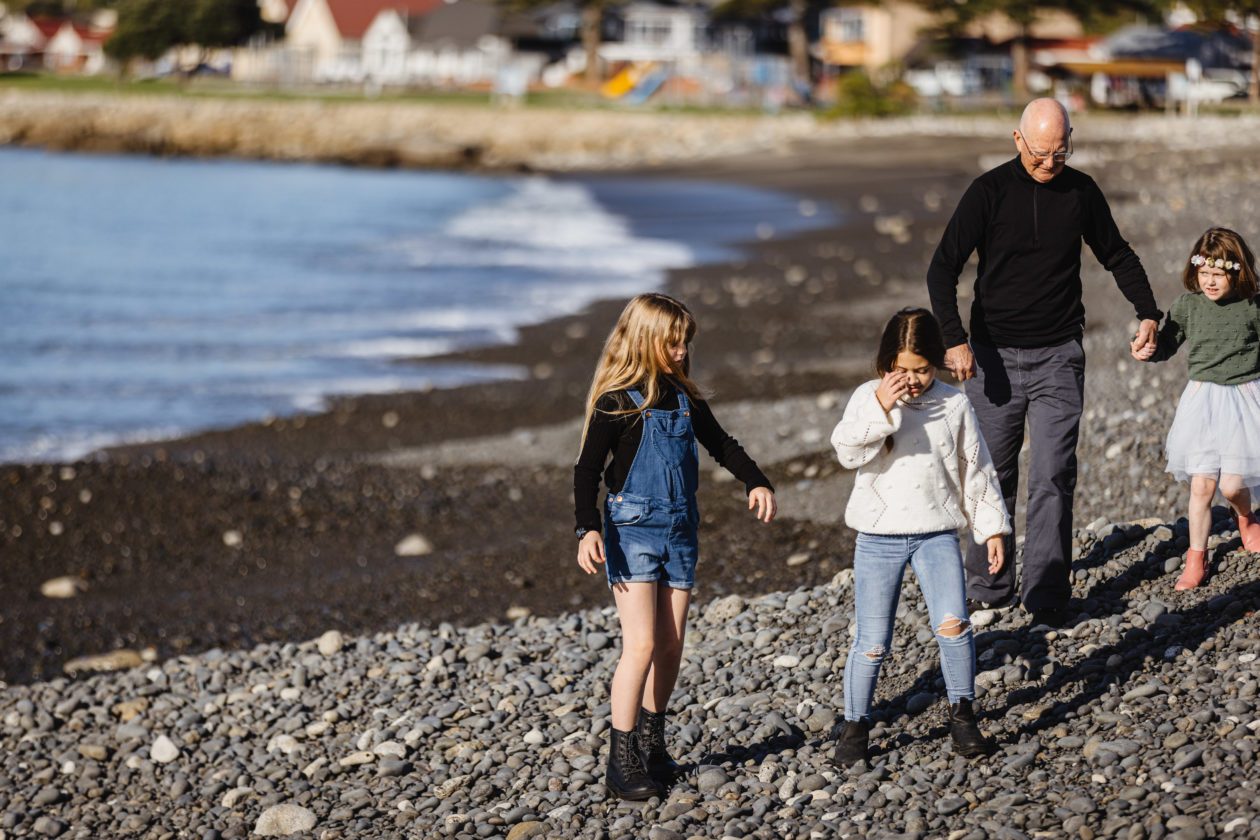Alister's story
The My Life's Journey app is a culmination of years of thought, and months of development.

Alister Robertson is an incredible person. He recently received an Outstanding Achievement Award for Community/NGO services in this year’s Minister of Health Volunteer Awards. He has always led an active life and his children sometimes find it difficult to keep up with him.
Alister is one of those people who are always thinking ‘there’s got to be a better way’. This has been true his whole life and an example of this was when he attended a day programme for people with dementia a few years ago.
Day programmes are an extremely important tool in living well with dementia. They are regular social interactions and use therapy-based models to support people to stay well and remain independent.
In Alister’s day programme session, he and the groups were tasked with writing down their life’s story. Thinking back to times past is based on Reminiscence Therapy and can help our brains to reinforce some neurological pathways.
It can also be really enjoyable to have old memories remembered after not thinking about them for decades.
Each week, Alister and the group were given different topics to write about. One week it was your school years, and another week it was games you liked to play etc. Participants were also asked to bring along photos to illustrate their stories.
My Life’s Journey app is a culmination of years of thought and months of development.
“Once you started having discussions it brought out more memories for people,” Alister explained.
This is where Alister’s thinking of ‘there must be a better way to do this’ came in. Alister would much rather do this kind of work on a computer, and he thought through some ideas over several years.
Out of this thinking came the soon to be launched My Life’s Journey app.
The app is a culmination of years of thought, months of development, and a generous grant from Ministry of Social Development (MSD). The app was originally conceived as a tool for care partners and carers to provoke conversations with people living with dementia.
It is designed to help residential care staff to learn more about you and become a conversation starter. As the app developed, Alister quickly realised that it could be useful for a much wider audience.
Any older person wanting to record the key moments in their life could use the app. Right down to new parents wanting to record key milestones of their new baby.
Alister has created an amazing tool for a wide audience, on a secure platform, so you can control who can read your memories. It has 10 categories and prompts to stimulate your memories. In Alister’s words: “triggering memories becomes addictive”. It also releases the happy hormone, dopamine.
Alister’s vision for the app is for it to be in every household. Thanks to the MSD grant, it is free to use, and will stay that way.
This is a way for people to discuss historical events and learn new things about the people you probably already know so well. It is also a wonderful way to leave your legacy.
Leaving a legacy is certainly what Alister has done by developing this app. He has also shown, once again, what amazing things people living with dementia can do.

